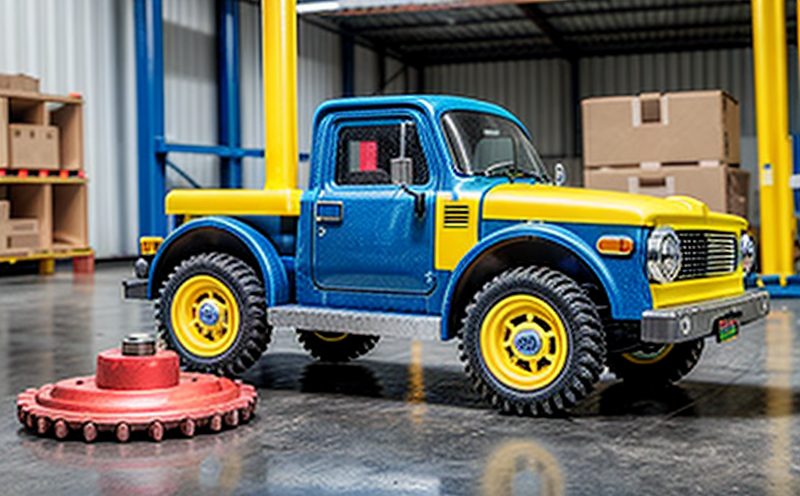Testing toys and products for compliance with torque-related safety standards
Ensuring Toy Safety Why Torque-Related Standards Matter in the Testing Process
As a manufacturer of toys and childrens products, you understand the importance of safety and compliance with industry standards. One crucial aspect of toy testing is ensuring that your products meet torque-related safety standards. At Eurolab, we offer a comprehensive laboratory service dedicated to testing toys and products for compliance with these critical regulations.
In this article, well delve into the world of torque-related safety standards, exploring what they entail, why theyre essential, and how our laboratory services can help your business stay ahead of the curve. Whether youre a seasoned industry expert or just starting out, this guide will provide valuable insights to inform your decision-making process.
What are Torque-Related Safety Standards?
Torque-related safety standards refer to the measurement of rotational force that a products components can withstand without failing or causing harm to children. These regulations are in place to prevent injuries and fatalities resulting from toys or products with weak or poorly designed mechanisms. Manufacturers must adhere to these guidelines to ensure their products meet minimum requirements for safety.
Why is Testing Toys and Products for Compliance with Torque-Related Safety Standards Essential?
There are several compelling reasons why your business should prioritize testing toys and products for compliance with torque-related safety standards
Reduce the Risk of Product Liability Non-compliance can lead to costly lawsuits, damage to your brand reputation, and financial losses. Our testing services help you identify potential issues before they become major problems.
Avoid Delays in Production and Distribution Compliance with regulatory requirements is a critical step in getting your products to market on time. Testing toys and products for torque-related safety standards ensures that your products meet industry standards from the outset, minimizing delays and disruptions.
Enhance Customer Trust and Confidence When consumers feel confident that your products have undergone rigorous testing and meet strict safety standards, theyre more likely to choose your brand over competitors.
Stay Ahead of Industry Regulations Regulatory agencies continually update and refine safety guidelines. Our team stays informed about the latest developments, ensuring that our testing services remain aligned with industry standards.
Key Benefits of Using Eurolabs Testing Services
Our laboratory services offer numerous benefits for manufacturers looking to ensure their products meet torque-related safety standards
Comprehensive Testing Capabilities Our state-of-the-art facilities and expert technicians provide a range of testing services, including torque measurement, material analysis, and component inspection.
Quick Turnaround Times We understand the importance of meeting production schedules. Our efficient testing processes enable us to deliver results rapidly, ensuring you can stay on track with your business plans.
Expert Guidance and Support Our team is dedicated to helping manufacturers navigate complex regulatory requirements. We provide expert guidance and support throughout the testing process.
Cost-Effective Solutions By identifying potential issues early on, our testing services help prevent costly rework, product recalls, and reputational damage.
QA Section Frequently Asked Questions About Torque-Related Safety Standards
Q What are some common torque-related safety standards for toys and products?
A Key regulations include those set by the European Unions (EU) Directive on the Safety of Toys (EN 71), the US Consumer Product Safety Commissions (CPSC) testing guidelines, and the International Organization for Standardizations (ISO) standards.
Q How often should manufacturers test their products for torque-related safety standards?
A Regular testing is essential to ensure ongoing compliance with industry regulations. Manufacturers should test their products at various stages of development, including design review, prototype evaluation, and post-production quality control.
Q What are some common types of tests used to assess torque-related safety standards?
A Tests include torque measurement, force analysis, material inspection, and component testing. Our laboratory services can help you navigate these complex procedures and ensure your products meet regulatory requirements.
By partnering with Eurolab for testing toys and products for compliance with torque-related safety standards, youll gain a competitive edge in the industry while protecting consumers from potential harm. Our comprehensive laboratory services are designed to provide peace of mind and confidence that your products meet or exceed regulatory standards.
-
Testing the rotational strength of components in toys and juvenile products
-
Verifying that toy parts, such as screws and fasteners, remain secure under twisting forces
-
Assessing the durability of rotating parts, such as wheels or gears, under torque stress
-
Ensuring that toys with moving parts are safe and durable under twisting motions
-
Testing toys to ensure that fasteners and joints are not prone to loosening or detaching
-
Simulating real-life twisting actions that children might perform on toys
-
Verifying that products with rotating components can handle the torque generated during use
-
Evaluating the resilience of toys with handles, knobs, or turning mechanisms under torque
-
Ensuring that toys do not break or malfunction when subjected to rotational stress
-
Testing the ability of toys with screw-in parts to withstand twisting forces without damage
-
Simulating continuous twisting and turning motions to evaluate product durability
-
Ensuring that toy components designed for rotation remain intact under twisting or turning
-
Testing the ability of toy joints and connections to withstand torque without loosening
-
Verifying that products with rotating parts do not present safety hazards when under stress
-
Ensuring that materials used in toys retain their strength under torque-related stress
-
Simulating various torque forces to ensure toy durability in different play scenarios
-
Verifying that battery compartments and other parts remain secure under twisting or torquing
-
Testing how toys with multiple components, like puzzles or constructions, hold up under torque
-
Assessing the effect of torque on the longevity and safety of juvenile products
-
Evaluating the force at which toy parts break, detach, or malfunction under twisting actions
-
Ensuring compliance with international torque testing standards for toys and juvenile products




